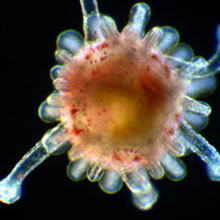
Its that time again, time to round up some renewable energy news that fell through the cracks this week. Its been a wonderful week, and there is a lot to roundup. So enough flim flam lets go!
On March 2, the New Mexico House passed S.B.418, which requires that at least 15% of an electric utility’s power supply come from renewable sources by 2015 and 20% by 2020. They also passed a bill supporting biodiesel. go New Mexico go!
Want and electric car? Got a car right now? Want to convert your car to electric? These people can help, they even have some pre-converted cars for sale.
Seems some very rich and very connected people think algae is the way forward when it comes to fuel. I just might agree with them.
National chain Safeway Inc. recently launched B20 biodiesel sales at a retail location in Seattle as part of a test on the alternative fuel.
Seems not all is Rosy in the EU. New members of the EU are resisting supporting renewable energy.
British Gas’s parent company, Centrica, today signalled the start of construction on the UK’s largest offshore wind farm development by making a major investment in offshore wind turbines at its Lynn and Inner Dowsing sites in the Greater Wash, off the Lincolnshire coast. Blimey!
New studies show what we all know, when we muck up the environment too badly it causes very bad things to happen.
The Sierra club is pro Cape Wind, Anti-NIMBY, and with good reason. Cape wind aint afraid of no NIMBY fool’s. They may even pitty the fool, I cant be sure.

Australia’s first wave power plant is up and ready to go. Seems they are using it for desalinating water and producing energy.
Plans are afoot for cheap and easy nano-solar cells. They look pretty cool lets hope this develops into something great.
A new electric vehicle that claims it can go 100 mpg and 100mph, looks pretty slick, are you ready to fly the road!

Using novel genomic technology, marine biologists have found troubling clues that marine life could be extremely vulnerable to climate change.